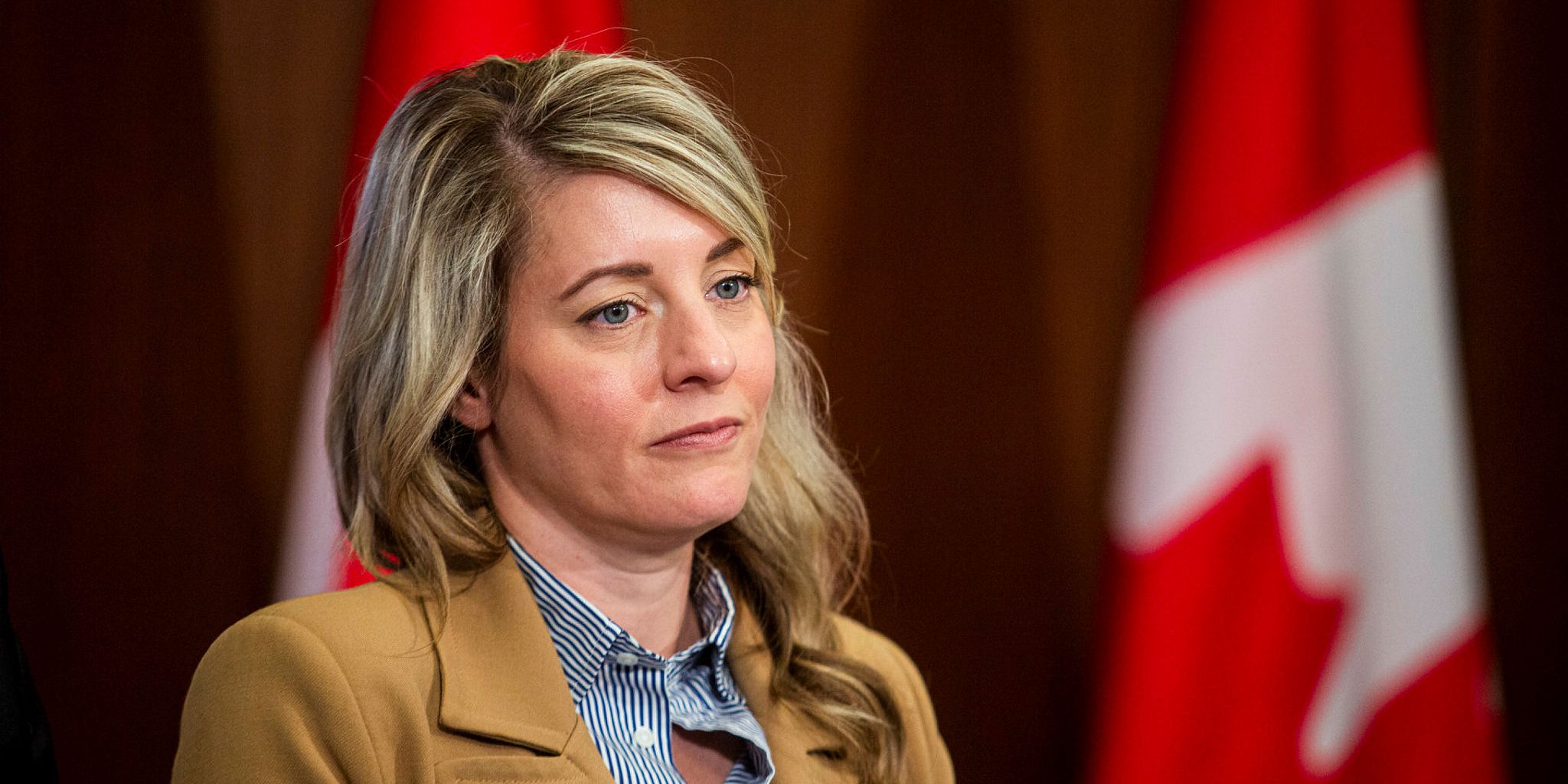
UPDATED: Telus happy, others upset by Joly decision upholding incumbent access to wholesale internet
Regulatory | |August 7, 2025
The federal government has declined to overrule the CRTC decision granting Canada’s largest telecom companies wholesale access to fibre networks outside of their home territories.
Telus Corp., which supported the commission’s ruling, was delighted by the move; other players in the sector were not.
In August of last year, the regulator decided to expand the mandatory wholesale access framework. Under the policy, all telecom providers would be able to use the networks of established companies in their resident region. In the months that followed, multiple firms had asked the commission and the federal cabinet to revise the decision so that incumbents could not sell to one another.
Industry Minister Mélanie Joly announced late Wednesday evening that cabinet would not be overturning the CRTC directive. Her statement pointed out that the commission is an independent body that considers competition, affordability, and investment.
“Their decision to uphold the mandatory wholesale access framework was based on extensive consultation with experts, the Competition Bureau, and over 300 public submissions,” Joly stated. “To that end, the government is declining to alter the CRTC’s decision to expand mandatory wholesale access.”
Within minutes, Telus released its own statement from CEO Darren Entwistle, lauding the ministerial move.
“We commend the federal government’s decision to uphold the CRTC’s wholesale fibre framework, a landmark ruling that reinforces Canada’s commitment to competition, choice, innovation and nation-building infrastructure investment,” he said. “This decision affirms that public policy in our country is guided by due process, a national diversity of voices, evidence and the long-term interests of Canadians. It sends a strong signal to consumers, businesses and investors that the Canadian regulatory system is robust, transparent and effective in balancing the needs of stakeholders, and enabling government policy.”
Cogeco Inc. took the opposite tack. President and CEO Frédéric Perron said the cabinet move contradicts efforts to promote competition.
“Cogeco is dismayed by the federal government’s decision to maintain the CRTC’s broken, nonsensical wholesale internet regime, and is profoundly disappointed by cabinet’s failure to ensure economic prosperity,” a news release issued minutes after Joly’s said. “The government’s inaction stifles competition and investment in essential digital infrastructure by unfairly empowering the Big Three telecom players (Bell, Rogers, and Telus) to expand through regulation by reselling the networks of smaller regional players.”
Cogeco has joined with Bragg Communications Inc.’s Eastlink in launching legal action against the CRTC ruling. The news release revealed the case would continue in the Federal Court of Appeal.
Eastlink executive vice chair Lee Bragg issued a statement saying the ramifications of the policy have already begun for the eastern firm.
“Given the government’s disregard for the smaller regional operators who have brought healthy competition to the marketplace and the crucial importance of long-term investments in telecommunications, we are now forced to consider how this affects our ability to remain competitive,” he remarked.
“With that in mind, we are suspending further planned upgrades to many smaller communities across Canada and I have instructed our team to take the next 30 days to identify communities that will become unprofitable and therefore require shutdown as a result of this decision.”
During its second quarter earnings call Thursday, BCE Inc. CEO Mirko Bibic said Bell is “obviously disappointed” and “[doesn’t] think it’s the right decision.”
“At this stage, we’d urge the government and the CRTC to ensure that network builders are fully compensated for the significant build costs and investment risk they take in building,” the CEO stated. “That’s what we’re going to focus on right now.”
Bibic continued to warn of reduced network investments in response to the regulatory framework, stating that the company’s fibre footprint will “plateau.”
“Already you’ve seen, quite unfortunately, a significant scaling back of our fibre build in the last 18 months,” he said.
In 2023, the company announced that it was going to be cutting over $1 billion worth of investments in 2024-25 as a result of the wholesale regime. Last year, it also laid off almost 4,800 employees, laying the blame squarely at the feet of the federal government and the CRTC.
“Not too long ago,” Bell was aiming to bring fibre to nine million locations by the end of 2025, now that is “largely going to plateau around the 8 million mark,” Bibic continued. “So that gives you a sense of the impact the decision’s has already had.”
He explained that instead of building more fibre, Bell is “going to be laser focused on penetrating what we’ve already built.”
The same day, Quebecor Inc. released its second quarter earnings report. CEO Pierre Karl Péladeau called for uniform pricing on third-party internet access (TPIA).
“Our position remains the same and is quite straightforward. TPIA pricing must be the same everywhere, coast to coast independently of which network is used to provide the service,” he told an analysts’ call. “Failure to do so would create an unfair advantage to some players in the market at the detriment of others.”
TekSavvy Solutions Inc. said it was “very disappointed” in Joly’s decision.
“The wholesale framework has always been intended to carve out a sustainable market for small competitors like TekSavvy,” company vice president of regulatory and carrier affairs Andy Kaplan-Myrth said in an email to The Wire Report.
“This decision instead helps giants like Bell and Telus dominate the market and squeeze out independent competitors. Given how this decision puts dominant telecom giants head to head against independent competitors, it is now even more critical that wholesale rates are significantly reduced.”
The Canadian Telecommunications Association also decried the move.
“At a time when the federal government has made critical infrastructure a national priority to strengthen Canada’s resilience and economic independence, this policy has led to a reduction of more than $1.5 billion in capital investment in telecommunications networks,” the group stated. “Billions more in lost investment are expected because of this policy. These are investments that would have expanded connectivity, created good jobs for Canadians, and advanced Canada’s digital future.”
The Competitive Network Operators of Canada (CNOC) called the cabinet decision a setback for customer choice.
“Reversing the ruling would have eliminated the so-called ‘head start’ provision in several regions, opening the door for smaller players to immediately serve Canadians who have long been shut out of meaningful participation in the market,” CNOC chair Paul Andersen told The Wire Report. “By enabling these competitors to expand their reach, the government could have fostered real competition, driven innovation, and helped lower prices for Canadian consumers.”
Rogers Communications Inc. warned what the future will hold following the cabinet move.
“The decision is a shocking reversal from the federal government’s principled position less than one year ago. The Carney government has declared its priority is to build a strong Canada and this decision does the exact opposite,” a statement emailed to The Wire Report said. “It does not incent Canadian companies to invest in Canada. Virtually the entire industry, including small and regional providers, urged our elected officials to reverse the CRTC decision. The impact of this decision will include cuts to capital investment, a loss of network construction jobs, and reduced competition which will mean higher prices for Canadians.”
Also wondering about the path forward was Nathan Simington, a past commissioner on the American Federal Communications Commission. The Saskatchewan native wrote an op-ed in the Globe and Mail which ran before the government announcement.
“No healthy competition policy anywhere supports regulatory remedies for large, dominant incumbents–not in the United States, where I served on the FCC, not in Europe, and not in Canada,” he opined. “This country’s independent and regional ISPs face a serious threat: not from market forces, but from the unintended consequences of regulation.”
He too decried the permission given to the Big Three to purchase bandwidth on their competitors’ grids. Anticipating a government reversal, Simington looked at a dire future.
“If cabinet does not act, the outcome is predictable,” he asserted. “Regional ISPs will be unable to compete against the bundles and scale of the dominant national incumbents, and will be unable to invest in competitive connectivity while sharing their networks with the Big Three firms that already control 87 per cent of the market.”
With files from Phalen Tynes-MacDonald.
Editor’s note: This story was updated to include reaction from Eastlink, TekSavvy, the Canadian Telecommunications Association, and CNOC.




